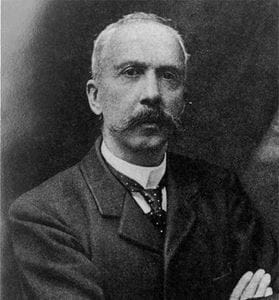The William H. Schneider History of French Eugenics Research Collection consists of publication manuscripts, conference presentations, correspondence, and other materials created and acquired by the donor (William H. Schneider, Professor Emeritus of History and Professor of Medical Humanities and Health Studies, Indiana University-Purdue University Indianapolis) while researching the history of eugenics in France. The Ruth Lilly Medical Library is pleased to announce this new addition to our History of Medicine Collection.
Notable items from the collection include an unpublished autobiography (Mémoires sur moi et les autres) written by French physiologist, eugenicist, and Nobel Prize winner, Charles Richet (1850-1935); French obstetrician Raymond Couvelaire's unpublished recollections (Épigrammes familiale et violons imaginaires) of his father-in-law, Adolphe Pinard (1844-1934), a pioneer of modern perinatal care and founder and first president of the French Eugenics Society (Société française d'eugénique); and letters exchanged between Schneider and Charles Richet's grandsons, Gabriel and Denis Richet, who provided him with original archival materials about their grandfather.
A detailed descriptive finding aid for the collection can be viewed in IU Archives Online: https://archives.iu.edu/catalog/VAE4267
Further Reading:
- Schneider W. (1982). Toward the improvement of the human race: the history of eugenics in France. The Journal of modern history, 54(2), 268–291. https://doi.org/10.1086/244134
- Schneider, W. H. (1990). Quality and quantity: the quest for biological regeneration in twentieth-century France. Cambridge: Cambridge University Press. https://iucat.iu.edu/catalog/569801
- Schneider W. H. (2001). Charles Richet and the social role of medical men. Journal of medical biography, 9(4), 213–219. https://doi.org/10.1177/096777200100900404
- Dunn P. M. (2006). Adolphe Pinard (1844-1934) of Paris and intrauterine paediatric care. Archives of disease in childhood. Fetal and neonatal edition, 91(3), F231–F232. https://doi.org/10.1136/adc.2005.074518
- Vergata A. (2018). In the name of science: the conceptual and ideological background of Charles Richet's eugenics. Historia, ciencias, saude--Manguinhos, 25(suppl 1), 125–144. https://doi.org/10.1590/S0104-59702018000300008
More about the RLML History of Medicine Collection
The Ruth Lilly Medical Library’s History of Medicine Collection supports the research, learning, and educational success of Indiana University students, faculty, and community members by collecting, preserving, interpreting, and providing access to unique materials documenting the history of medicine; medical education, training, research, and practice; and health and disease treatment and prevention in the state of Indiana and beyond within the global context of the Western medical tradition.
The History of Medicine Collection is located on the third floor of the Ruth Lilly Medical Library (Room 307) and is open by appointment only (Monday-Friday, 10:00am-4:00pm). Research appointments and classes can be scheduled by contacting medlref@iu.edu.
